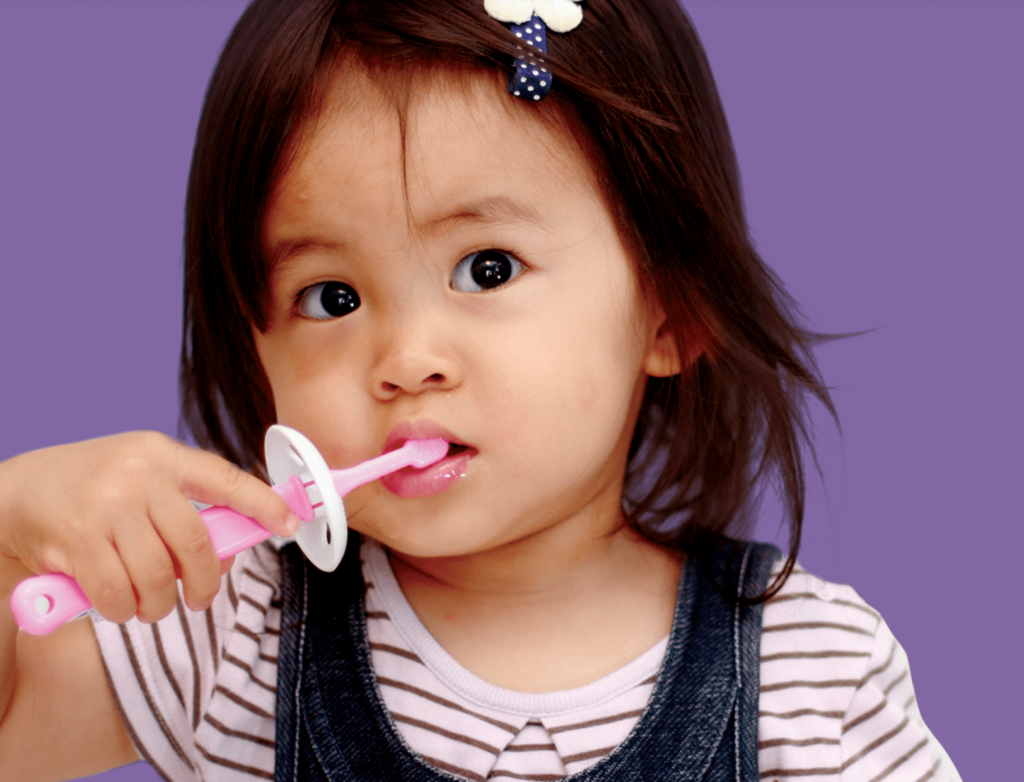Tooth decay — the destruction of the hard, outer layer of your teeth (the enamel) — is the most common chronic disease among children. More than 40 percent of children have cavities by the time they reach kindergarten, according to the National Children’s Oral Health Foundation®.

What causes tooth decay, and how can it be prevented?
Consuming too many sugary drinks and snacks can cause tooth decay. For this reason, you should limit the amount of sugary beverages your child drinks to avoid prolonged exposure of the liquid to teeth. These beverages include soft drinks or sweetened fruit juice.
If you give your child a sippy cup for long periods of time, fill it only with water, and don’t allow him or her to take it to bed. When your child begins eating solid foods, you should limit the amount of sugary or starchy snacks, especially food that can get stuck on or between teeth.
Your child should avoid, or sparingly consume, cookies, cakes, candy and gum.
When should my child to visit the dentist?
The ideal time for a first dental visit is six months after your child’s first tooth erupts, or by his or her first birthday. After the first visit, your child should see the dentist every six months
How do I prepare for this first visit?
Before your child’s first dental visit, ask the dentist about the procedures that will take place during the first appointment so there are no surprises. Talk with your child about what to expect, and plan a course of action for any possible reaction your child may have. Also, bring records of your child’s complete medical history for his or her dental file.
How can I protect my child’s oral health
at home?
• Clean your infant’s gums with a clean, damp cloth after each feeding.
• Monitor excessive sucking of pacifiers, fingers and thumbs to avoid teeth misalignment.
• Encourage your child to drink tap or fountain water. If you buy bottled water, make sure that it is fluoridated. Fluoride makes the entire tooth structure more resistant to decay and promotes remineralization.
• As soon as your child’s first teeth come in, begin brushing them with a small, soft-bristled toothbrush and water. If you are considering using toothpaste before your child’s second birthday, be sure to ask your dentist first.
• When your child is old enough, encourage him or her to brush to build self-confidence. Always monitor your child’s brushing technique and thoroughness.
The ideal time for a first dental visit is six months after your child’s first tooth erupts, or by his or her first birthday. After the first visit, your child should see the dentist every six months.
What should I know about pacifiers and
oral health?
Pacifier use is typically acceptable after an infant is one month old and has had sufficient time to develop a healthy breastfeeding habit. However, experts recommend that children stop using pacifiers after their second year. Continued use could result in teeth misalignment and the development of a cross-bite, among other issues. Talk with your dentist if you have any other pacifier questions or concerns.
© COPYRIGHT 2017 BY THE ACADEMY OF GENERAL DENTISTRY. ALL RIGHTS RESERVED.